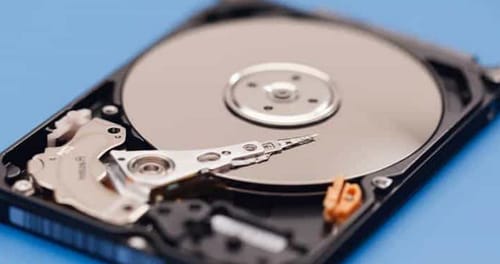 |
| Comparison of FAT32 exFAT and NTFS file management systems |
Different types and shapes of storage drives, some come in the form of large hard drives, flash drives, SD cards, and in many cases, users will need to reformat the storage space to solve space issues.
If you try to do this on Windows, the system will show you three different options for formatting this space, which are FAT32, exFAT, and NTFS.
Each of these options is a different file format and management system. It depends on how the file is saved to disk space. In addition, Windows uses NTFS by default, whether it is a system volume or a non-removable public volume.
The superiority of NTFS file management system
As mentioned above, Windows is based on the NTFS file system. When the system is installed for the first time, the hard drive or sector will be reset automatically and Windows will work on it to take full advantage of the system.
Microsoft first introduced NTFS in Windows XP. It offers a variety of features that the other two file management systems do not. The system also allows management of permissions for security purposes as well as a quick solution to minor issues encountered by the system.
The system supports backup and encryption as well as setting the maximum storage space consumption. Hence, the Windows operating system depends on it. If the user has an additional hard drive in the computer, he must choose the NTFS format for it if he intends to run programs or applications on it.
NTFS file management systems generally suffer from compatibility issues. But not within the Windows system itself, but outside it. Because macOS cannot write (ie transfer data) to NTFS drives.
This also applies if Linux does not support this by default. While PlayStation can't play NTFS-based discs, the new Xbox Series X can't.
FAT32 and exFAT systems
The FAT32 file management system is known to be the oldest. It was introduced in Windows 95 to replace the FAT16 system that was used with DOS. The fact that the system is obsolete has both advantages and disadvantages.
Its most important advantage is compatibility as FAT32 drives are built into all systems and devices. In fact, all USB drives come standard with this system.
However, there are some drawbacks to this system, the most important of which may be that the size of the files stored on these disks should not exceed 4 GB and therefore it is very suitable for external storage disks, especially external storage. flash disks.
exFAT, which was first introduced in 2006, was developed primarily for external storage drives, so despite its novelty, it does not have any NTFS functionality. But this solves the problems of the other two systems. Hence, it supports file storage of more than 4GB and can work normally on all devices and even gaming platforms.